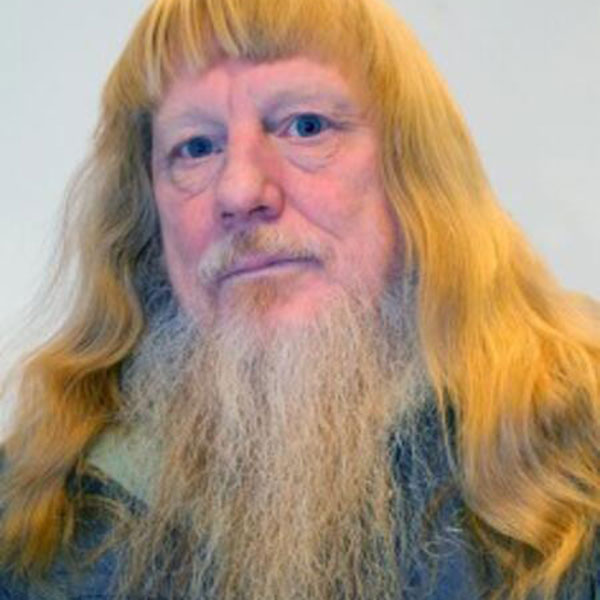Lynn Usery
1951 - 2022

On March 22, 2022, the world lost a GIS giant and cartography compadre when Dr. Lynn Usery passed from this earthly plane following a brief illness. He will be sorely missed by the geography community, not only for his many research contributions, leadership and vision, and tireless service, but also for his friendship and camaraderie.
Michael Tischler of the U.S. Geological Survey (USGS) wrote, “On paper, we knew him as the Director of the Center of Excellence for Geographic Information Science [CEGIS]. But he was far more than that title would lead one to believe. Lynn leaves a remarkable legacy given his extraordinary scientific accomplishments, presence as a leader in the geographic science community, and impact on individual geographic scientists inside USGS and around the world.”
It’s a challenge to specify the impact that Lynn has had on the field of GIScience because of the breadth and depth of his involvement and contributions. He was centrally involved in many areas of the discipline, including cartography, GIS, remote sensing, and spatial analysis. His eclectic research interests included digital cartography, map projections, scale and resolution, image classification, temporal GIS, geospatial semantics and ontology, and high-performance computing for geospatial data. It would be difficult to name a subject in the field about which Lynn could not speak knowledgeably and insightfully.
Lynn was unique in that his impact came through his careers in both government and academia. Lynn started working for the USGS in 1977. He was a cartographer and geographer for the USGS from 1978 to 1988 focusing on developing automated cartographic production systems. In 1988, he took on a geography faculty position at the University of Wisconsin (UW) – Madison. In January of 1994, he moved to Georgia to serve on the geography faculty at the University of Georgia (UGA). In May of 1999, Lynn took on a Research Geographer position with the USGS in addition to his academic job at UGA. In 2005, he returned to USGS and ultimately conceived and became Director of CEGIS. In this role, he directed the science program and the visions and plans for topographic mapping research. While at USGS, Lynn also taught remote sensing at the Missouri University of Science and Technology.
In all his positions, Lynn was a ground breaker. In his early days at USGS, he began the development of digital mapping systems for the automated production of printed topographic maps. At UW, he helped found a GIS program. At UGA, he helped establish certificate programs in GIScience at both the undergraduate and graduate levels. When he returned to USGS, he started a cartography research program that led to CEGIS.
Lynn was active in several professional societies including the AAG, the Cartography and Geographic Information Society (CaGIS) where he served as president from 2002 to 2004 and chaired AutoCarto 2005, 2006, and 2010, and the International Cartographic Association (ICA) where he spearheaded the effort to bring the International Cartographic Conference back to the United States for only the second time. He was also presented with the CaGIS Distinguished Career Award in 2012.
On a personal note, Lynn was born in December 1951. He had two children, a son Kelynn, born 1986, and a daughter, Lacy, born 1988. Lynn received his BS in geography from the University of Alabama and MA and Ph.D. degrees in geography from UGA.
On an even more personal note, I first met Lynn when, as a lowly master’s student, I invited him to give a presentation at Indiana University using funding from the American Association of Geographers’ Visiting Geographical Scientist Program (VGSP). To me, Lynn was already a GIS giant. I placed him on a proverbial pedestal, but he wouldn’t stay put. He treated me as an equal, though I didn’t feel that was deserved. And throughout the remainder of our association, he continued to do the same. He also did that with everyone else I saw him interact with. He was truly a giant, but he interacted with people on the same level, not by bringing himself down to their level, but by elevating them to his. He will truly be missed.
By Aileen Buckley